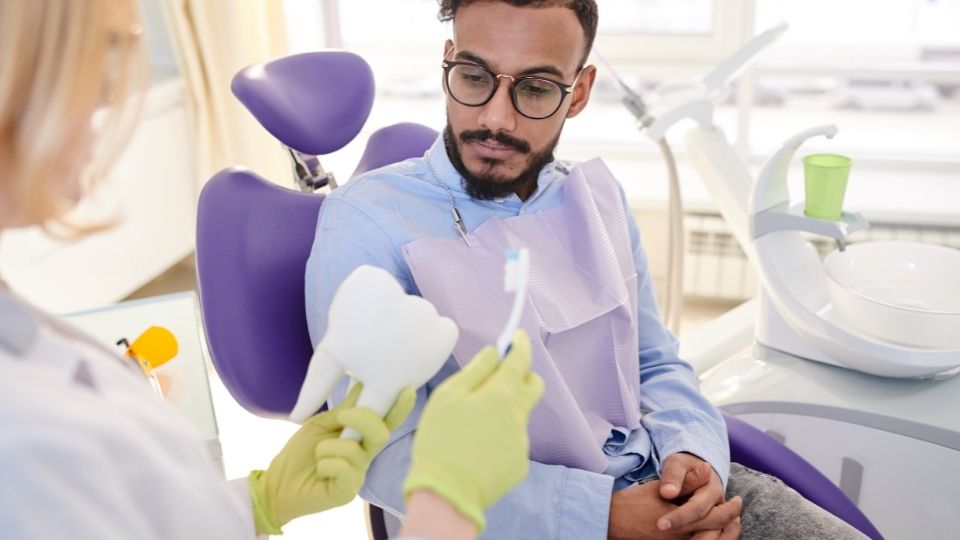Navigating the Aftermath: Brushing Your Teeth After Wisdom Teeth Removal
Following wisdom teeth removal, proper oral hygiene is crucial for a smooth recovery and minimizing the risk of infection. Brushing your teeth might seem daunting initially, but with the right approach, you can maintain cleanliness and promote healing. This comprehensive guide explores the importance of brushing after wisdom teeth removal, outlines the recommended timeline and technique, and provides a helpful FAQ section to address your post-operative concerns.
The Importance of Brushing After Wisdom Teeth Removal
While the extraction sites themselves might be sensitive, maintaining good oral hygiene after wisdom teeth removal is essential for several reasons:
- Prevents Infection: Bacteria in the mouth can increase the risk of infection in the extraction sockets. Brushing removes food particles and plaque that harbor bacteria, promoting healing.
- Reduces Discomfort: Food debris left around the extraction sites can irritate the area and exacerbate discomfort. Brushing gently removes debris, promoting a cleaner and more comfortable healing environment.
- Freshens Breath: Following surgery, there might be a slight metallic taste or bad breath. Brushing with a mild toothpaste can help freshen your breath and improve your overall oral hygiene.
The Brushing Timeline: When to Begin
While it might seem counterintuitive, brushing your teeth after wisdom teeth removal is necessary, but the timing needs to be carefully considered. Here’s a general timeline:
- Day 1: Following surgery, focus on resting and pain management. Avoid brushing or flossing near the extraction sites, but you can gently rinse your mouth with cool salt water (½ teaspoon salt dissolved in a glass of warm water) several times a day.
- Day 2 and Beyond: You can begin gentle brushing of the entire mouth, excluding the immediate area around the extraction sites. Use a soft-bristled toothbrush and a mild, fluoride-free toothpaste.
- After 7-10 Days: As swelling and discomfort subside, you can cautiously resume brushing the general area around the extraction sites. Be extremely gentle and avoid directly brushing the sockets themselves.
Brushing Technique: Prioritizing Gentleness
Here’s how to brush your teeth effectively after wisdom teeth removal:
- Use a Soft-Bristled Toothbrush: A soft-bristled toothbrush is crucial to avoid irritating the sensitive extraction sites.
- Opt for Mild, Fluoride-Free Toothpaste: Use a mild, fluoride-free toothpaste for the first few days to minimize irritation. Fluoride can sometimes cause discomfort after surgery. You can reintroduce fluoride toothpaste later in the recovery process.
- Gentle Brushing Motions: Utilize gentle circular motions, focusing on cleaning the surfaces of your teeth. Avoid harsh scrubbing or forceful brushing.
- Pay Attention to Your Tongue: Brushing your tongue gently can help remove bacteria and freshen your breath.
- Rinse Thoroughly: After brushing, rinse your mouth thoroughly with cool salt water or lukewarm water.
Additional Tips for Optimal Brushing
Here are some additional tips to promote a smooth recovery and effective oral hygiene after wisdom teeth removal:
- Brushing Frequency: Aim to brush your teeth twice daily, following the gentle technique mentioned above.
- Replace Your Toothbrush: Consider using a new, soft-bristled toothbrush after surgery to ensure optimal cleaning and hygiene.
- Listen to Your Body: If you experience any pain or discomfort while brushing, stop immediately and consult your dentist.
- Maintain a Healthy Diet: Stick to soft foods that require minimal chewing during the initial healing phase. Gradually transition back to your regular diet as tolerated.
- Follow Your Dentist’s Instructions: Strictly adhere to the post-operative instructions provided by your dentist, including specific guidance on brushing and oral hygiene.
FAQ on Brushing Your Teeth After Wisdom Teeth Removal
Q: What happens if I don’t brush my teeth after wisdom teeth removal?
Neglecting oral hygiene after surgery can increase the risk of infection, slow down the healing process, and lead to discomfort and bad breath.
Q: Can I use mouthwash after wisdom teeth removal?
Consult your dentist before using any mouthwash after wisdom teeth removal. Some mouthwashes can be too harsh for the sensitive extraction sites. Your dentist might recommend a specific alcohol-free mouthwash for gentle rinsing.
Q: How long should I use a soft-bristled toothbrush after surgery?
You can continue using a soft-bristled toothbrush for several weeks after surgery, or as recommended by your dentist. As your mouth heals, you can gradually transition back to a regular toothbrush.
Q: When can I resume flossing after wisdom teeth removal?
Flossing can be challenging initially due to potential swelling and discomfort.

